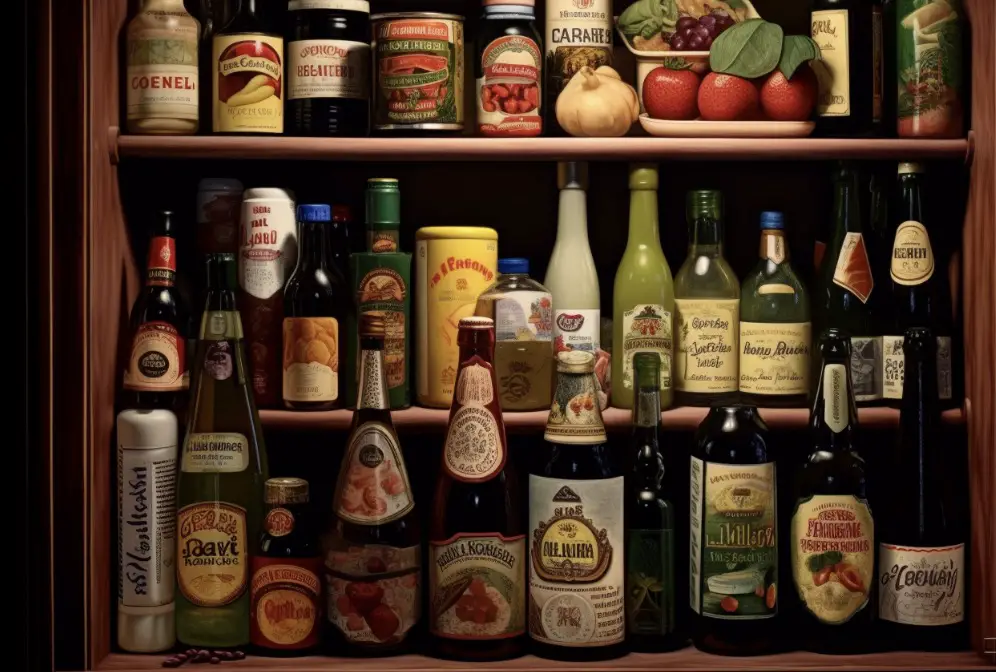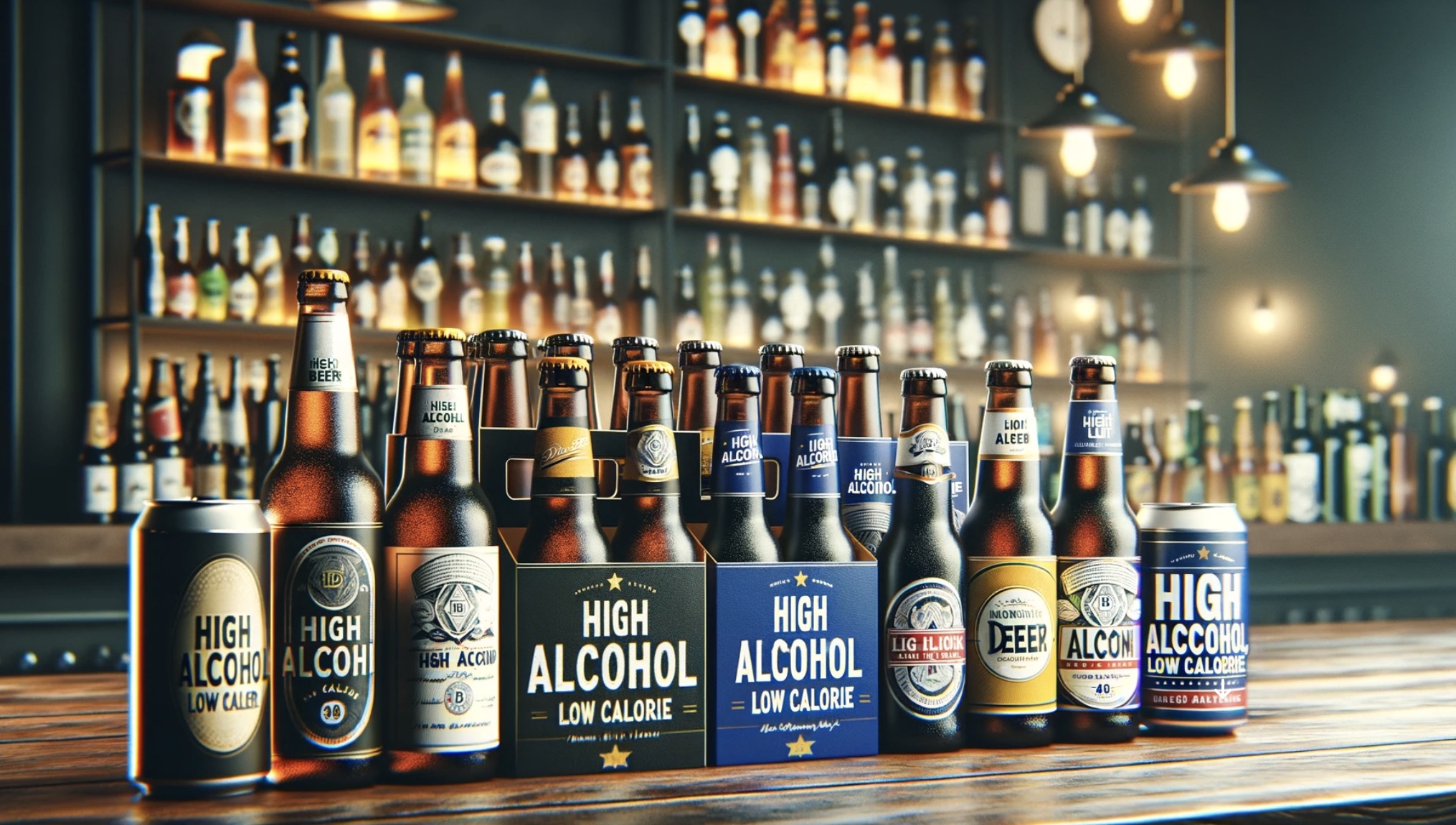Manischewitz wine lasts for about 7 to 10 days after opening when properly stored in the refrigerator.
This sweet and fruity kosher wine is a popular choice during Jewish holidays, but it can be enjoyed anytime you want a taste of something different. In this blog post, we will explore the factors that contribute to its shelf life, how to properly store it, and how to enjoy it before it goes bad.
Grab a glass and let’s dive in!
What is Manischewitz Wine?
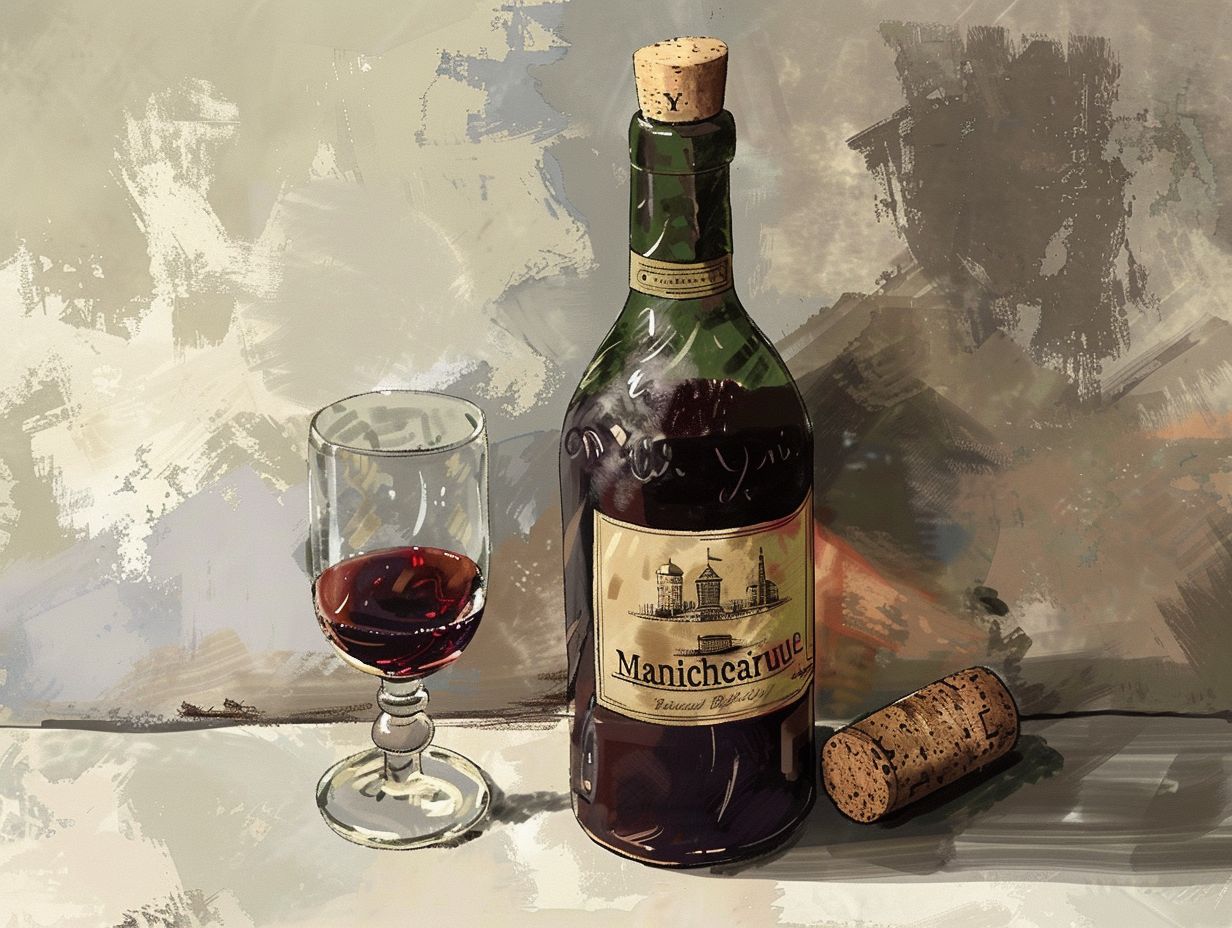
Manischewitz Wine is a kosher sweet wine that holds a special place in Jewish culinary and cultural traditions. It is known for its unique flavors and sweetness, making it a popular choice for various celebrations and holidays.
Originally produced by the Manischewitz Company in the late 1800s, this wine has deep roots in Jewish heritage, becoming a staple at Passover seders and other festive gatherings. The production process involves fermenting Concord grapes, resulting in its distinct purple hue and rich, fruity taste. Its sweetness comes from added sugar, giving it a smooth and syrupy texture. Manischewitz Wine’s profile sets it apart from dry wines, appealing to those with a preference for sweeter libations. Whether enjoyed with matzo at Passover or paired with traditional Jewish dishes, the wine’s flavor adds a touch of tradition to any occasion.”
How is Manischewitz Wine Made?
Manischewitz Wine is crafted through a meticulous production process that combines quality ingredients to achieve its signature taste. The wine-making begins with selecting ripe Concord grapes, which are known for their dark color and distinctive sweet flavor.
After harvesting the grapes, they undergo a crushing process to extract the juice. The juice is then fermented using special yeast strains to convert the sugars into alcohol. Throughout fermentation, the wine is carefully monitored to ensure optimal flavor development. Once fermentation is complete, the wine is clarified and filtered to remove any sediment. The wine is bottled and aged to enhance its complexity before reaching consumers.
What is the Shelf Life of Unopened Manischewitz Wine?
The shelf life of unopened Manischewitz Wine can vary depending on various factors, but typically, it can last for a considerable period if stored under optimal conditions.
Factors such as storage temperature, humidity levels, and the quality of the cork play a crucial role in determining how long the wine can maintain its best quality. Generally, unopened Manischewitz Wine can remain at its peak for 1-2 years when stored in a cool, dark place away from direct sunlight and temperature fluctuations.
To extend its shelf life, it is advisable to store the bottles horizontally to keep the cork moist and prevent it from drying out. Maintaining a consistent temperature between 55-65°F is ideal for preserving the wine’s freshness.
How Long Does Manischewitz Wine Last After Opening?
Once opened, Manischewitz Wine starts a countdown before its taste and quality might start deteriorating due to exposure to air. It is recommended to consume the wine within a specific time frame to savor its full flavor.
Air exposure can lead to oxidation, causing the wine to lose its vibrant fruity notes and develop a vinegar-like taste. Factors such as temperature fluctuations and light exposure can further accelerate spoilage.
To enjoy the wine at its best, seal the bottle tightly after each serving and store it in a cool, dark place. Ideally, it is suggested to consume Manischewitz Wine within 3-5 days after opening to ensure optimal taste and freshness.
What Factors Affect the Shelf Life of Opened Wine?
Several factors can influence the shelf life of opened Manischewitz Wine, including the rate of oxidation, the degree of deterioration, and the time remaining for optimal enjoyment. To prolong the wine’s quality, it is essential to employ specific tips and tricks.
One of the key factors affecting the remaining shelf life of opened Manischewitz Wine is oxidation, which occurs when the wine comes into contact with air. This process can lead to changes in flavor, aroma, and color, affecting the overall taste of the wine. Deterioration, caused by exposure to light, heat, or improper storage conditions, can further hasten the spoilage of the wine.
To prevent oxidation and deterioration, store the opened wine in a cool, dark place and seal it tightly with a cork or wine stopper. Refrigeration can also slow down the oxidation process, preserving the wine’s freshness for longer periods. By being mindful of these factors and taking proper storage precautions, you can extend the shelf life of your opened Manischewitz Wine and continue to enjoy its rich flavors.
How Should Manischewitz Wine be Stored?
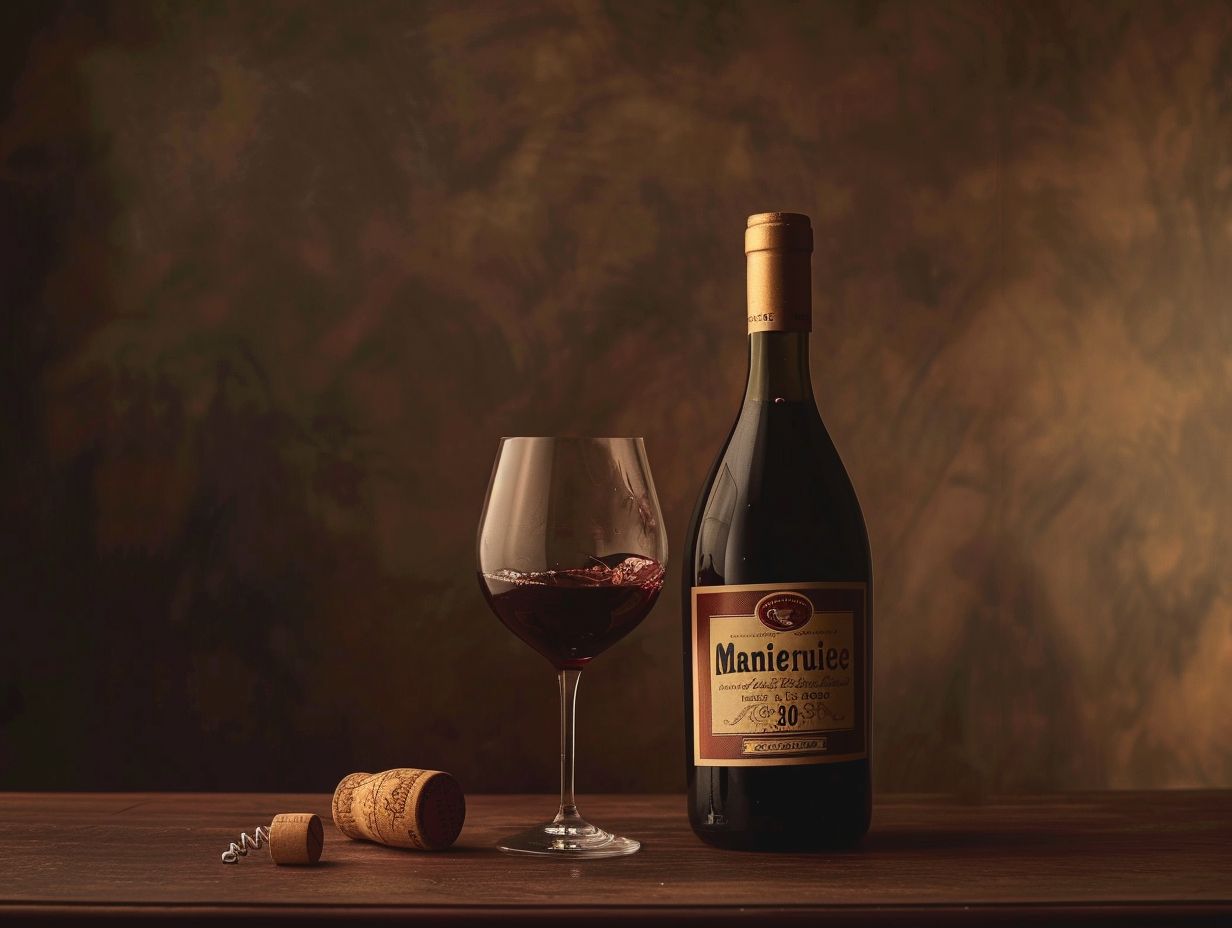
Proper storing of Manischewitz Wine is crucial to preserve its taste and quality over time. Following specific storage guidelines can help in maintaining the wine’s freshness and savor for an extended period.
Manischewitz Wine should be stored in a cool, dark place away from direct sunlight and heat sources to prevent the wine from spoiling or losing its flavors. It is advisable to store the bottles on their side to keep the cork moist and ensure a proper seal. Avoid storing the wine in areas with strong odors as the wine can easily absorb external smells. Maintaining a consistent temperature around 55-65°F (13-18°C) is ideal for preserving the wine’s integrity. By following these simple yet effective storage practices, you can ensure that your Manischewitz Wine remains at its best for future enjoyment.
What is the Ideal Temperature for Storing Manischewitz Wine?
The ideal temperature for storing Manischewitz Wine can significantly impact its longevity and flavor profile. While room temperature is suitable for short-term storage, a temperature-controlled cellar provides the optimal conditions for long-term preservation.
Cellar storage ensures that the wine is shielded from fluctuations in temperature and humidity, which can degrade its quality over time. The consistent cool temperature of a cellar, typically around 55-59°F (13-15°C), helps the wine age gracefully and develop complex flavors. This controlled environment prevents premature aging and oxidation, allowing the wine to mature slowly and reach its full potential. Therefore, to safeguard the taste and freshness of Manischewitz Wine, storing it in a cellar within the recommended temperature range is highly advisable.
Does Manischewitz Wine Need to be Refrigerated After Opening?
After opening, refrigeration can be beneficial to slow down the wine’s oxidation process and extend its drinkable period. By refrigerating opened Manischewitz Wine, you can avoid waste and continue enjoying its flavors.
The cool temperature in the refrigerator helps in maintaining the wine’s freshness and preserving its fruity undertones. With refrigeration, you can also prevent the wine from turning vinegary or losing its vibrant color over time. Storing the opened bottle in the fridge can slow down the growth of any harmful bacteria, ensuring that each pour tastes just as delightful as the first. This simple step can make a significant difference in the overall quality and lifespan of your Manischewitz Wine.
How Can You Tell if Manischewitz Wine Has Gone Bad?
Identifying whether Manischewitz Wine has gone bad involves paying attention to various indicators, such as changes in aroma, taste, and appearance. Spoilage detection is crucial in ensuring a pleasant drinking experience.
One common sign that Manischewitz Wine may have spoiled is a vinegar-like smell, indicating that acetic acid has formed. If the wine smells musty or like wet cardboard, this could be a result of cork taint, a fault that occurs when a cork is contaminated. If you notice a dark or cloudy appearance in the wine, it might have oxidized. It’s important to be vigilant when detecting these signs, as consuming spoiled wine can lead to an unpleasant taste and even health risks.
What are the Best Ways to Use Leftover Manischewitz Wine?
Leftover Manischewitz Wine can be repurposed in various creative ways beyond drinking it directly. From using it in cooking recipes to crafting unique cocktails, there are numerous opportunities to make the most of the remaining wine.
In cooking, this sweet wine can add a depth of flavor to dishes like braised meats or even desserts like poached pears.
When it comes to cocktails, consider mixing the Manischewitz Wine with club soda and fresh fruit for a refreshing spritzer, or incorporating it into a sangria recipe for a flavorful twist.
To effectively incorporate the wine, ensure you match its sweetness level with the other ingredients in your recipe, balancing flavors to create harmonious combinations that truly shine.
Can You Use Manischewitz Wine for Cooking?
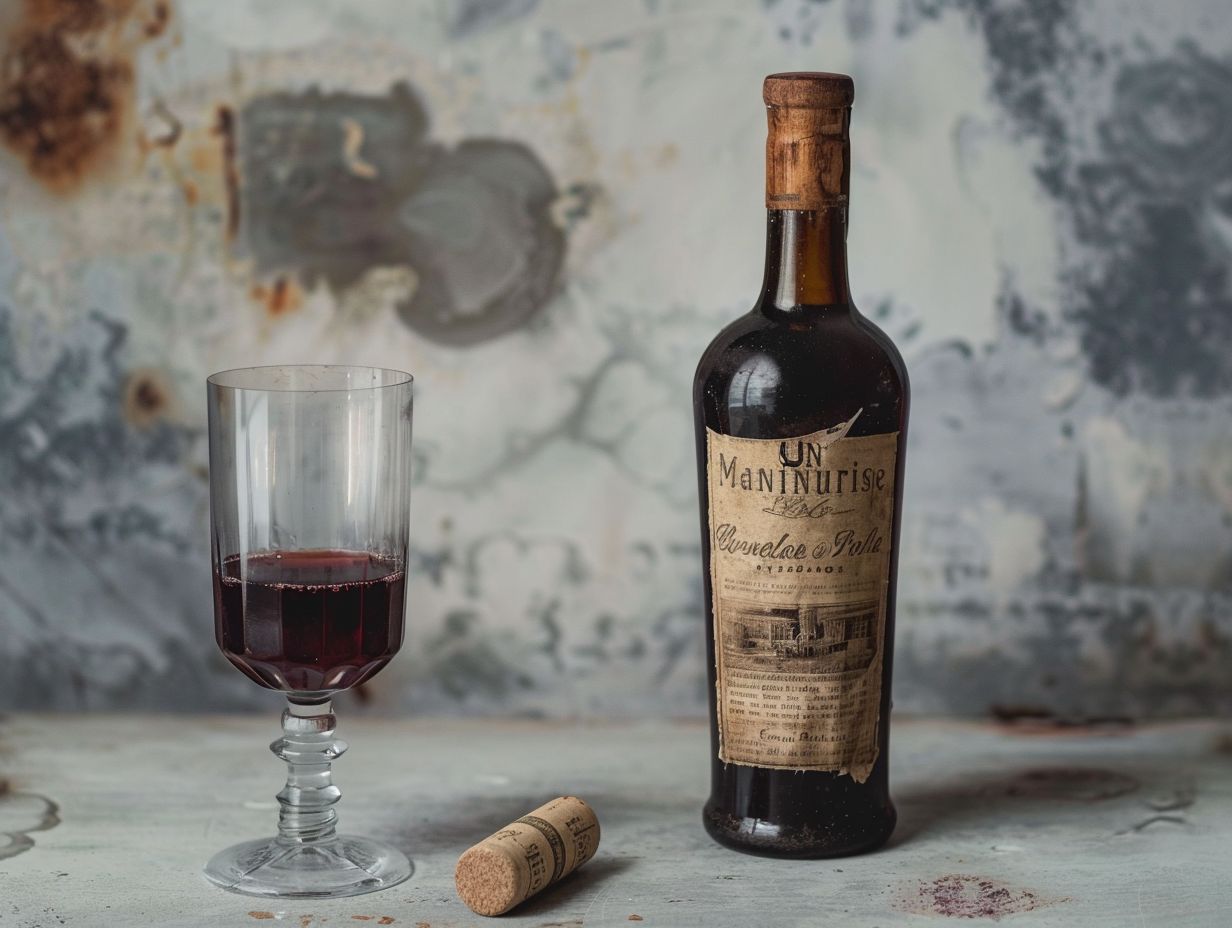
Manischewitz Wine serves as an excellent ingredient for cooking, adding depth and richness to a variety of dishes. Its distinct flavor profile can enhance both savory and sweet recipes, making it a versatile choice for culinary experimentation.
The deep fruity notes of Manischewitz Wine pair beautifully with hearty stews and braised meats, infusing them with a robust flavor. When used in marinades for poultry or game meats, the wine tenderizes the meat while imparting a unique taste.
Adding a splash of Manischewitz Wine to tomato-based sauces or gravies can elevate the overall complexity of the dish, creating a delightful symphony of flavors. Desserts like poached fruits or fruit compotes also benefit from the sweet and tangy undertones of this wine, adding a sophisticated touch to a simple treat.
Can You Make Cocktails with Manischewitz Wine?
Manischewitz Wine can be a delightful component in crafting unique cocktails that showcase its sweetness and flavor profile. By experimenting with different mixology techniques, you can create refreshing drinks that highlight the wine’s distinct characteristics.
- For a twist on a classic cocktail, try mixing Manischewitz Wine with ginger beer and a splash of lime juice to create a flavorful Manischewitz Moscow Mule.
- If you prefer a more sophisticated option, consider blending the wine with bourbon and a hint of maple syrup for a smooth and rich Manischewitz Old Fashioned.
- To elevate your cocktail game even further, experiment with infusing the wine with fresh fruits or herbs to add layers of complexity to your creations.
Are There Any Health Benefits of Drinking Manischewitz Wine?
While Manischewitz Wine can be enjoyed for its taste and savoring experience, it also offers potential health benefits when consumed in moderation. From antioxidant properties to heart health advantages, there are aspects of this wine that contribute to overall well-being.
The antioxidant content of Manischewitz Wine, primarily derived from the grapes used in its production, can help combat oxidative stress in the body.
Moderate consumption of this wine has been linked to potential cardiovascular benefits, such as lowering the risk of heart disease and promoting better circulation.
The act of leisurely savoring a glass of Manischewitz can also be a relaxing and enjoyable experience, contributing to stress reduction and improved mental well-being.
Embracing the healthful aspects of this wine can be a delightful addition to one’s wellness routine.
What Are Some Alternative Options for Manischewitz Wine?
If you are exploring alternatives to Manischewitz Wine, there are various options to consider, including non-alcoholic versions and other kosher wines that share similar characteristics. Whether for personal preference or dietary reasons, exploring these alternatives can provide new tasting experiences.
For a non-alcoholic alternative, consider trying Ariel Cabernet Sauvignon or Herzog Lineage Rosé, both of which offer rich flavors without the alcohol content. If you’re looking for kosher wines that are similar to Manischewitz but with a more refined taste, options like Bartenura Moscato or Covenant Cabernet Sauvignon could be ideal choices. These selections are versatile and pair well with a variety of dishes, making them suitable for different occasions from casual gatherings to special celebrations.
Is There a Non-Alcoholic Version of Manischewitz Wine?
For those seeking a non-alcoholic alternative, there are options available that replicate the essence of Manischewitz Wine without the alcohol content. These non-alcoholic versions offer a similar taste experience for individuals looking to enjoy the flavors without the intoxicating effects.
Non-alcoholic versions of Manischewitz Wine preserve the fruity and sweet characteristics that make the original wine popular. These alternatives are crafted to provide a pleasant drinking experience without the presence of alcohol, making them suitable for those who prefer to avoid or limit their alcohol consumption. Whether it’s a family gathering, a religious celebration, or a casual evening at home, these non-alcoholic options allow individuals to partake in the tradition of enjoying Manischewitz Wine in a way that aligns with their preferences.
Are There Other Types of Kosher Wine Similar to Manischewitz?
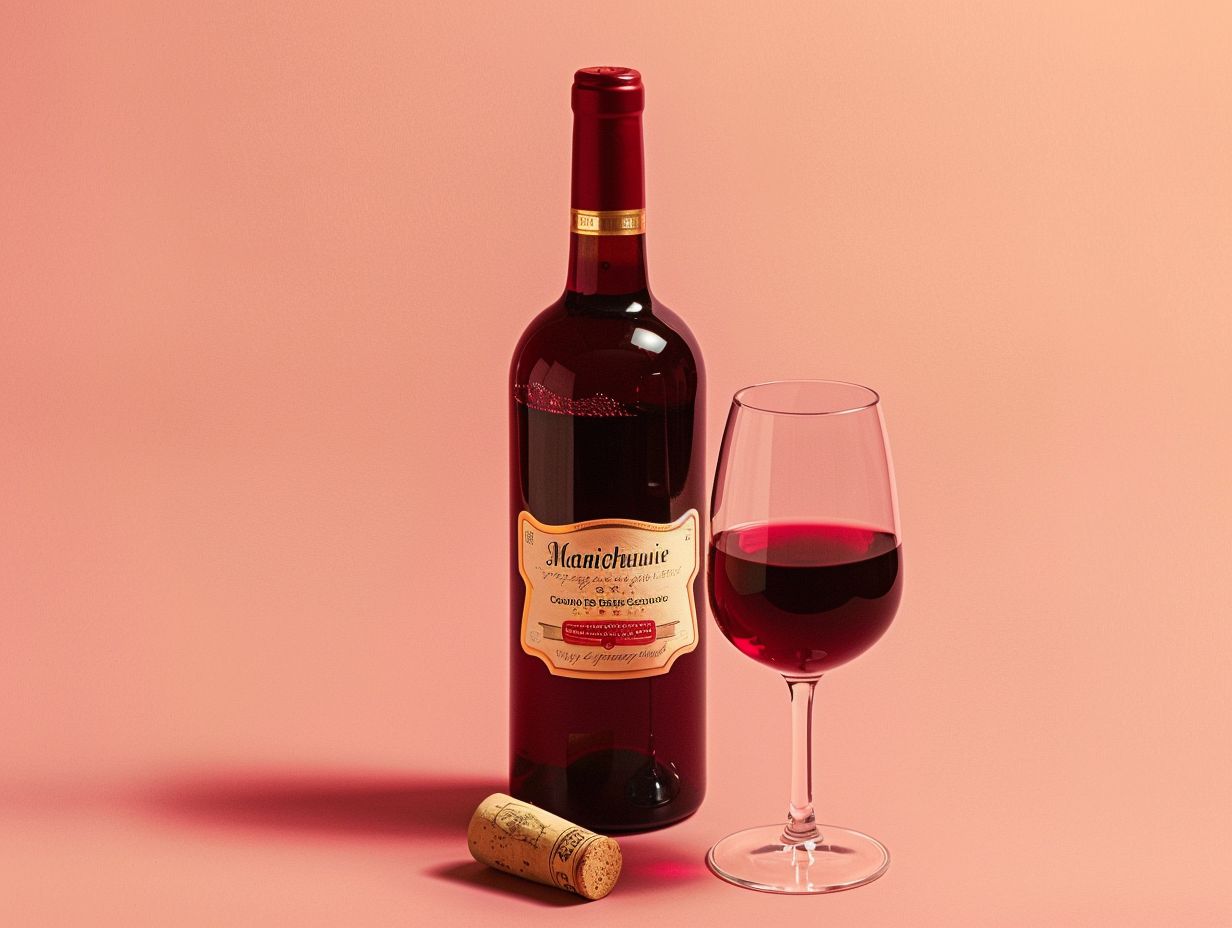
In the realm of kosher wines, there exist numerous varieties that share similarities with Manischewitz in terms of taste, quality, and production methods. Exploring these other kosher wine options can introduce new flavors and experiences to wine enthusiasts familiar with Manischewitz.
For those looking to broaden their kosher wine palate beyond the sweet and fruity profile of Manischewitz, wines such as Bartenura Moscato and Covenant Wines offer a contrasting experience. Bartenura Moscato, with its light and crisp taste, is a popular choice for those seeking a refreshing option with lower alcohol content. On the other hand, Covenant Wines provide a rich and complex flavor profile, often preferred by individuals looking for a bold and robust kosher wine. Both of these options showcase the diversity within the realm of kosher wines, catering to various preferences and occasions.
Factors That Affect the Shelf Life of Manischewitz Wine
There are a few factors that can affect the shelf life of Manischewitz wine after it has been opened.
1. Oxygen exposure: Like all wines, Manischewitz is sensitive to oxygen. Once the bottle is open, the wine begins to oxidize, which can change the flavor and color. The more oxygen exposure, the faster the wine will deteriorate.
2. Temperature: Heat can also affect the quality of the wine. Higher temperatures can speed up the oxidation process and cause the wine to spoil more quickly.
3. Light exposure: Direct sunlight or bright lights can have a negative impact on the wine, causing it to age more quickly.
Proper Storage Techniques
To ensure that your Manischewitz wine lasts as long as possible after opening, follow these proper storage techniques:
1. Re-cork or use a wine stopper: After opening the bottle, re-cork it tightly or use a wine stopper to minimize oxygen exposure.
2. Store in the refrigerator: Keep the wine in the refrigerator to slow down the oxidation process and maintain its freshness.
3. Keep away from direct sunlight: Store the wine in a dark place, away from direct sunlight or bright lights.
How to Tell if Your Manischewitz Wine Has Gone Bad
There are a few signs to look for when determining if your Manischewitz wine has gone bad:
1. Color change: If the wine has changed color, it may be a sign of oxidation. Manischewitz wine should be a vibrant purple-red color. If it’s turned brown, it’s likely past its prime.
2. Unpleasant smell: If the wine has a sour, vinegar-like smell, it has likely gone bad.
3. Taste: If the wine tastes off or sour, it’s time to discard it.
How to Enjoy Your Manischewitz Wine Before It Goes Bad
To fully enjoy your Manischewitz wine before it goes bad, try these suggestions:
1. Serve chilled: Manischewitz wine tastes best when served chilled. Refrigerate it for at least an hour before serving.
2. Pair with food: The sweetness of Manischewitz wine pairs well with spicy or salty foods, like cured meats, cheeses, and crackers.
3. Try it in a cocktail: Manischewitz wine can be used as a base for various cocktails. Try mixing it with vodka or gin and a splash of soda water for a refreshing twist.
Alternatives to Manischewitz Wine
If you’re not a fan of Manischewitz wine, consider trying these alternative kosher wines:
1. Bartenura Moscato: A sweet and fizzy Italian Moscato that’s perfect for dessert.
2. Yarden Cabernet Sauvignon: A full-bodied and robust Israeli red wine that pairs well with red meats and hearty dishes.
3. Golan Heights Winery Yarden Chardonnay: A rich and buttery Israeli white wine that’s great with fish and poultry dishes.
Conclusion
To sum up, Manischewitz wine lasts for about 7 to 10 days after opening when properly stored in the refrigerator. By following proper storage techniques and enjoying the wine within its shelf life, you can ensure that you’re getting the best taste possible.
Here are 10 quick facts about Manischewitz wine:
1. Manischewitz wine is a sweet and fruity kosher wine.
2. It’s made primarily from Concord grapes.
3. The wine is often associated with Jewish holidays.
4. Oxygen, temperature, and light exposure can affect its shelf life.
5. Proper storage techniques include re-corking, refrigeration, and avoiding direct sunlight.
6. Signs that the wine has gone bad include color change, unpleasant smell, and off taste.
7. Enjoy Manischewitz wine chilled, paired with food, or in a cocktail.
8. Alternative kosher wines include Bartenura Moscato, Yarden Cabernet Sauvignon, and Golan Heights Winery Yarden Chardonnay.
9. Manischewitz wine has been produced in the United States since 1934.
10. The wine is enjoyed by many, not just those who celebrate Jewish holidays.
FAQs
How long does Manischewitz wine last after opened?
Once opened, Manischewitz wine can last for about 3-5 days if stored properly. It is important to reseal the bottle tightly after each use and store it in a cool, dark place, preferably in the refrigerator. This will help slow down the oxidation process and maintain the wine’s quality for a few more days. However, like most wines, Manischewitz is best enjoyed within a day or two of opening to fully appreciate its flavors and aromas.
Does kosher wine expire?
No, kosher wine does not expire in the traditional sense. Like all wines, kosher wine can age and change in flavor over time, but it does not spoil or become harmful to consume. However, it is important to note that not all kosher wines are meant for long-term aging. Some kosher wines, particularly those labeled as “mevushal” (meaning cooked or pasteurized), are intended for immediate consumption and may not improve with age. On the other hand, certain high-quality kosher wines, such as those made from specific grape varieties or produced by reputable wineries, can benefit from proper aging and may develop more complex flavors and aromas over time. It is always recommended to consult the specific producer’s recommendations or a knowledgeable wine expert for guidance on the aging potential of a particular kosher wine.
Can you drink red wine 7 days after opening?
Yes, you can drink red wine 7 days after opening, but it may not taste as fresh as when it was first opened. Once a bottle of red wine is opened, it starts to oxidize due to exposure to air. This oxidation process can alter the flavor and aroma of the wine over time.
After 7 days, the wine might have lost some of its fruity and vibrant characteristics, and the flavors may have become duller. However, this can vary depending on the specific wine, its quality, and how it was stored after opening.
To maximize the lifespan of an opened bottle of red wine, it’s best to reseal it tightly with a cork or a wine stopper and store it in a cool, dark place. This can help slow down the oxidation process and preserve the wine’s flavors for a longer period. Additionally, using a wine preservation system or vacuum pump can further extend the wine’s freshness by removing excess air from the bottle.
Can you drink red wine 7 days after opening screw top?
Yes, you can drink red wine 7 days after opening a screw top bottle. Unlike cork closures, screw top closures provide an airtight seal, preventing excessive oxygen exposure to the wine. This helps preserve the wine’s quality and freshness for a longer period compared to traditional cork closures. However, it’s important to note that the quality and drinkability of the wine can vary depending on several factors such as the wine’s initial quality, storage conditions, and personal preferences. It’s recommended to store the opened bottle in a cool, dark place and consume it within a week or so for optimal taste.
Is there an expiration date on wine?
Yes, there is an expiration date on wine. However, it is important to understand that wine doesn’t necessarily spoil or become harmful to consume after this date. Instead, the expiration date on wine refers to the point at which the wine may start to deteriorate in quality.
The shelf life of wine can vary greatly depending on several factors, including the type of wine, the winemaking process, and storage conditions. In general, most wines are meant to be consumed within a few years of their vintage date, which is the year the grapes were harvested.
Wines that are considered age-worthy, such as certain red wines, may improve in flavor and complexity over time if stored properly. These wines can often be enjoyed for several decades or even longer. However, the majority of wines produced today are meant to be consumed within a shorter timeframe, typically within 1-5 years of their vintage date.
It’s important to note that improper storage conditions, such as exposure to heat, light, or fluctuations in temperature, can accelerate the aging process and cause wine to deteriorate more quickly. Additionally, once a bottle of wine is opened, it begins to oxidize, and its flavors and aromas can change within a matter of days or weeks, depending on the type of wine.
To ensure the best quality and enjoyment, it is generally recommended to consume wine within a reasonable timeframe from its vintage date and to store it properly in a cool, dark place. However, it’s worth mentioning that some well-made wines can still be enjoyable beyond their suggested expiration date, while others may lose their vibrancy and freshness. Ultimately, the best way to determine if a wine is still good to drink is to taste it and evaluate its quality.
Does unopened Manischewitz wine go bad?
Unopened Manischewitz wine, like any other wine, can go bad over time. However, the rate at which it deteriorates depends on various factors, including storage conditions and the specific type of wine. Manischewitz wine is a sweet kosher wine, typically made from Concord grapes, and it often contains added sugar and preservatives.
If stored properly, unopened Manischewitz wine can maintain its quality for a few years, especially if it is a fortified wine or has a higher alcohol content. Fortified wines, such as Manischewitz Cream Red Concord, are more resistant to spoilage due to their higher alcohol levels and added spirits. These types of wines can potentially last for several years, even after opening.
However, for regular Manischewitz wine without fortification, it is generally recommended to consume it within a few years of purchase. Over time, the wine may undergo oxidation, resulting in a loss of flavor, color, and aroma. The added sugar and preservatives can help slow down this process, but they are not indefinite safeguards.
To maximize the shelf life of unopened Manischewitz wine, it is crucial to store it in a cool, dark place, away from direct sunlight and extreme temperature fluctuations. Proper storage conditions can help delay the deterioration of the wine and maintain its quality for a longer period.
Ultimately, it is advisable to check the label or contact the manufacturer for specific recommendations regarding the shelf life of a particular Manischewitz wine, as different vintages and styles may have varying longevity.

